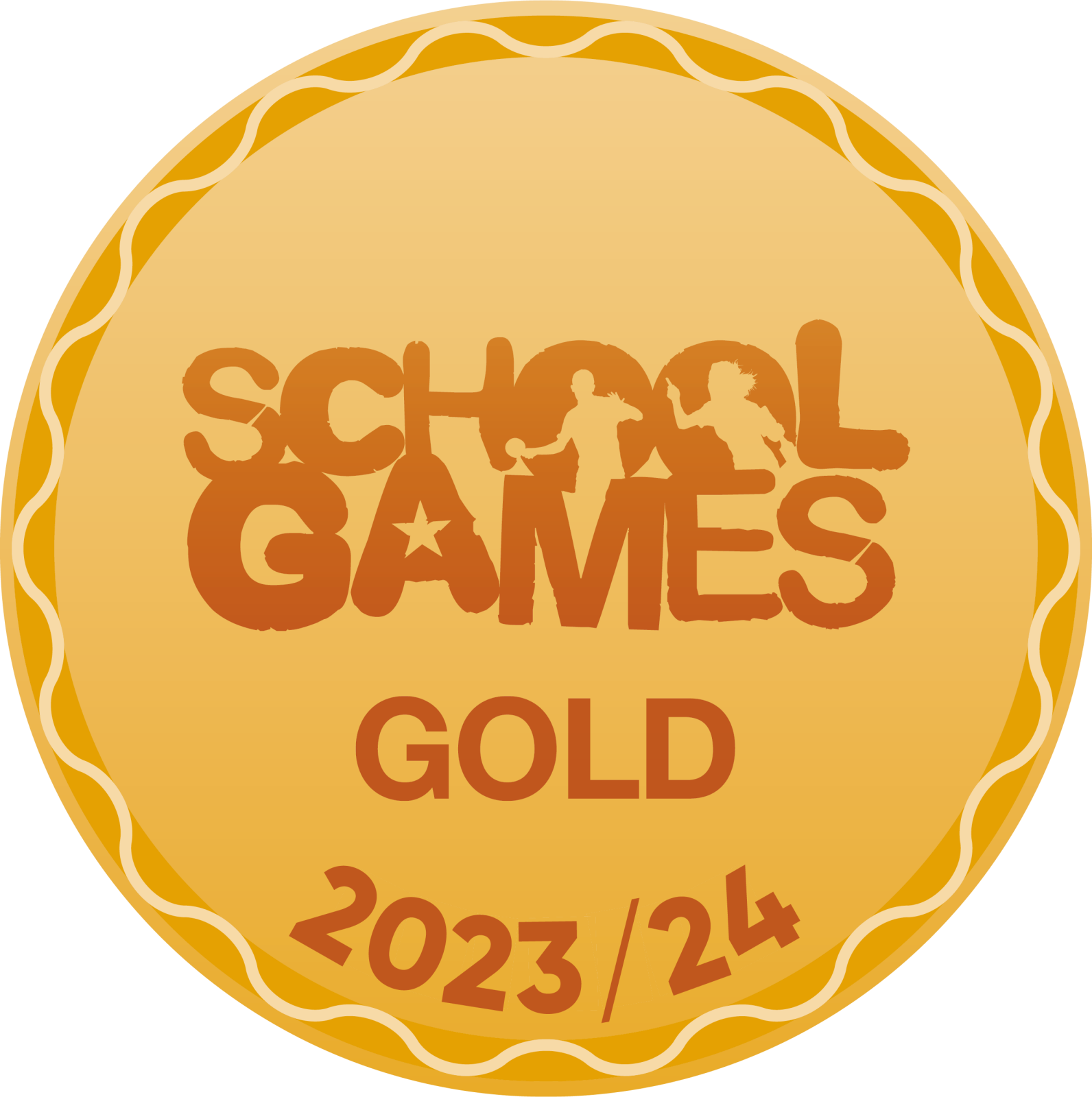Geography
Welcome
The first lesson we learn in Geography is…… Geography is everything!
Geography permeates all aspects of our everyday life. It affects us all, from our journey to school and the factors of current economics that make us decide whether to drive or walk to exploring in the far-flung reaches of the world and seeing how climate change has affected sinking tropical islands in the Pacific or how economics can affect development.
The Geography department at Edgbarrow School is vibrant, popular and very successful. Our students achieve great things and become outstanding geographers.
Our Geography curriculum is designed with enjoyment at its core, because to learn and be engaged, you must also be enjoying your studies. This is why the Geography curriculum at Edgbarrow School is designed to be relevant, engaging and topical. This is backed up with high-quality first teaching from our experienced group of teachers who all work towards the same goals but who each have their outstanding styles of teaching.
We are a forward-thinking department who are always looking to innovate in the classroom. We use modern pedagogical techniques to encourage deep learning and excellent knowledge recall.
We believe it is crucially important for students to be able to discuss openly the issues of a changing global environment and we encourage the students to share their experiences along the way.
Key Staff
Mr Russell-Smith - Head of Department
Mr Andrews
Mr Burges
Mr Macfarlane
Miss Wallace
Mrs Balague (HLTA)
Curriculum Intent
Geography helps students experience the awe and wonder of the world, to understand their place in it and how they can have a positive impact at a local, national and global scale. Geography is essentially the study of everything!
Key Stage 3
By the end of Key Stage 3, all students will become “skilled geographers”. Through the teaching of various topics, students will learn and be assessed on the following core geographical skills:
- Describe
- Explain
- Evaluate
- Map Skills
- Numeracy
Each lesson taught incorporates at least one of these skills. This will equip the students with the right core geographical skills to move on to GCSE Geography.
Students are also encouraged to use their skills of investigation and fieldwork alongside developing knowledge recall, deep learning and revision skills. This all helps to create independent learners who have a love of learning and a thirst for knowledge.
Assessment Bands
Students will follow national guidelines throughout Key Stage 3 to support and prepare them for their Key Stage 4 courses. The school operates a banding system of 1-9 (9 being the highest band). Students will be given a target based on their Key Stage 2 scores and baseline assessments on arrival at Edgbarrow. The band they are awarded at the end of the Key Stage is intended to indicate the grade they may achieve at GCSE.
FOR YEAR 7 & 8 ONLY: We have recently changed how we track progress in Key Stage 3. The new format is currently in operation with Years 7 and 8 only. In each subject, students are given one of three progress bands: foundation, intermediate and higher. These bands are based on Key Stage 2 scores and evidence gathered by class teachers. Throughout Key Stage 3, students will be judged to be meeting, exceeding or below expectations for their given band. The headline criteria for each of these bands can be found below, as well as a short presentation explaining the new assessment and reporting format.
Summary Curriculum Plans
-
Edgbarrow School 2025-26 Geography Yr7
download_for_offline
download_for_offlineEdgbarrow School 2025-26 Geography Yr7
- Edgbarrow School 2025-26 Geography Yr8 download_for_offline
download_for_offlineEdgbarrow School 2025-26 Geography Yr8
- Edgbarrow School 2025-26 Geography Yr9 download_for_offline
download_for_offlineEdgbarrow School 2025-26 Geography Yr9
Homework Intent
Year 7 students will learn the key geographical skills to succeed in Geography and to start to discover and understand the awe and wonder of the world.
Year 8 students will build on their learning of geographical skills whilst exploring the world to further understand their place in it.
Year 9 students will continue to develop their geographical skills and start their journey towards their GCSE.
Key Stage 4
We aim to further develop the key skills and knowledge learnt at both Key Stage 2 and Key Stage 3 in order to be successful in Geography GCSE.
Students will improve their knowledge of locations, places, processes and environments at different scales (AO1) and be able to demonstrate geographical understanding of concepts and how they are used in relation to places, environments and processes and the interrelationships between places, environments and processes (AO2).
Students will learn how to apply knowledge and understanding to interpret, analyse and evaluate geographical information and issues to make judgements (AO3) and will be able to select, adapt and use a variety of skills and techniques to investigate questions and issues and communicate findings (AO4).
A particular focus will be on the more advanced evaluative skills, as these are important when answering many 6-mark and 9-mark questions in their exam.
We will continue to encourage a love of learning and make sure the students are ready for their GCSEs and the next step in their journey whatever that might be.
Summary Curriculum Plans
-
Edgbarrow School 2025-26 Geography Yr10
download_for_offline
download_for_offlineEdgbarrow School 2025-26 Geography Yr10
- Edgbarrow School 2025-26 Geography Yr11 download_for_offline
download_for_offlineEdgbarrow School 2025-26 Geography Yr11
Homework Intent
Year 10 students will enhance their geographical skills and knowledge further developing the tools to apply this to their GCSE exams.
Year 11 students will compound their learning of both knowledge and skills, will be exam-ready for their GCSE and ready for the next step in their journey, whatever that might be.
Key Stage 5
A-Level students will develop their knowledge and understanding of places, environments, concepts, processes, interactions and change at a variety of scales (AO1). A particular area of focus will be developing how students can apply this knowledge and understanding in different contexts to interpret, analyse and evaluate geographical information and issues (AO2).
They will also build on their knowledge of relevant quantitative, qualitative and fieldwork skills (AO3) to:
- investigate geographical questions and issues
- interpret, analyse and evaluate data and evidence
- construct arguments and draw conclusions
Students will also develop their independence as young adults, particularly in the completion of their NEA, which will also help develop their investigative and research skills, preparing them for the next stage after A-Levels.
Summary Curriculum Plans
-
Edgbarrow School 2025-26 Subject Sheet Yr12- Geography
download_for_offline
download_for_offlineEdgbarrow School 2025-26 Subject Sheet Yr12- Geography
- Edgbarrow School 2025-26 Subject Sheet Yr13- Geography download_for_offline
download_for_offlineEdgbarrow School 2025-26 Subject Sheet Yr13- Geography
Homework Intent
Year 12 students will take their knowledge and skills and develop new, more advanced geographically specific skills and knowledge. Students will also develop their independence as young adults preparing them for the next stage after A-Levels.
Year 13 students will have a full range of advanced geographical and life skills and be fully prepared for their A-Level exams and for the next stage of their journey post-Edgbarrow School.
Inclusion
It is our intent that pupils with special educational needs/disabilities (SEND) follow the same curriculum, learn alongside their peers and achieve similar outcomes. In addition, they may benefit from additional opportunities in the lessons and in the co-curricular activities that are arranged especially for them.
SEND Implementation and Impact
Literacy
Reading Aims:
- To ensure students are equipped to understand command words in questions.
- To ensure students are equipped with a range of independent reading strategies to aid comprehension when reading.
- To support students in understanding the complex vocabulary that they encounter in their reading.
- To encourage students to read geographical literature for pleasure outside of the lessons.
Writing aims:
- To ensure students are equipped with strategies to construct their answers.
- To ensure students are equipped with a range of independent strategies to enable them to plan their answers carefully.
- To equip students with strategies to reflect on their written responses.
- To explicitly teach subject-specific key terms and their application within written tasks.
- To support students in writing clearly and concisely making good use of subject-specific vocabulary.
Spoken Language Aims:
- To ensure students are equipped to use a range of vocabulary as well as subject-specific vocabulary in their spoken language.
- To support students in using spoken Standard English.
- To teach students how to listen and respond formally.
- To provide students with opportunities for structured talk.
Co-Curricular
Geography offers opportunities for students to take part in clubs, trips and fieldtrips.
Trips
When
Year Group
Natural History Museum
December/January
Year 7
TBC
Spring/summer
Year 8
Chessington World of Adventures
Summer (enrichment)
Year 9
GCSE fieldwork trip to Crowthorne
Summer
Year 10 Geography students
GCSE fieldwork trip to Bournemouth
Summer
Year 10 Geography students
Iceland
TBC
All GCSE and A-Level students (Years 10 to 13)
Nettlecombe fieldwork trip
Summer (July)
Year 12 A-Level students
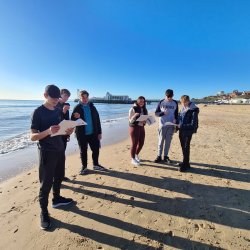
Bournemouth Fieldwork

Iceland Trip
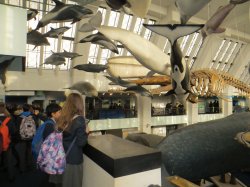
Natural History Museum
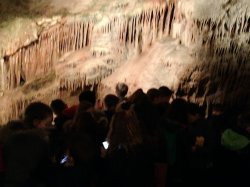 Cheddar Gorge
Cheddar Gorge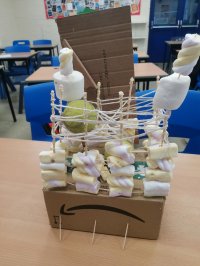
Geography Club
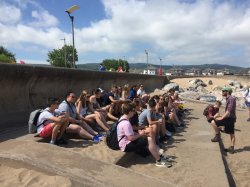
Nettlecombe Fieldwork
Independent Study
Key Stage 3
Key Stage 4
View current revision material
For further information regarding our Geography Curriculum please contact:
Mr Russell-Smith (Head of Department) - Edgbarrow School 2025-26 Subject Sheet Yr13- Geography download_for_offline
- Edgbarrow School 2025-26 Geography Yr11 download_for_offline
- Edgbarrow School 2025-26 Geography Yr8 download_for_offline







